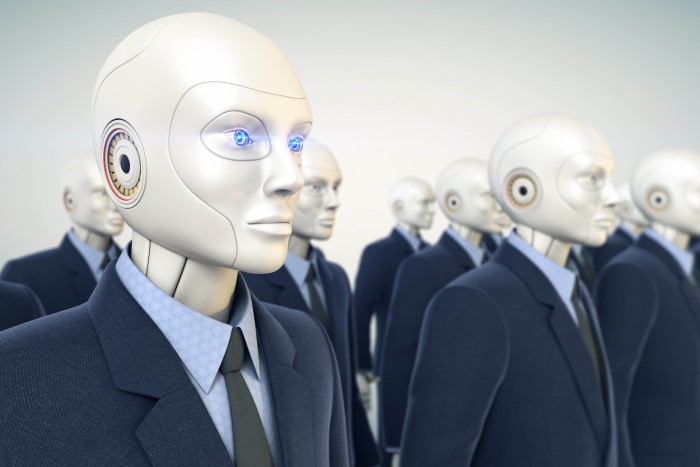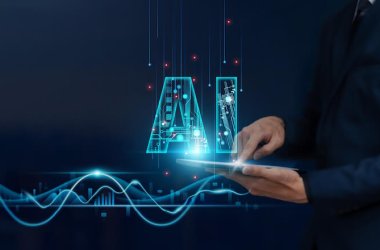Artificial intelligence (AI) is a popular topic of debate across industries worldwide. For many, the possibility of leveraging AI is a positive way to make businesses more productive and efficient, while offering more sophisticated customer offerings.
However, others view the rise of AI and automation with more caution, particularly in regards to jobs losses. The fact is that AI will fundamentally shift the way organisations operate, from top to bottom, as well as alter the very definition of both jobs and tasks — for the better.
Industries are entering an era where those who do not embrace automation will be left behind. From a jobs angle, this does not mean that entire jobs and livelihoods will be wiped out, but rather, a new definition of work will be created.
Automation is elevating value
From the Industrial Revolution, automation has brought tremendous value to organisations. For businesses, this value comes from the efficiencies that accompany automation and the increased ability to personalise the customer journey.
Indeed, a recent IDC report found that by 2021, 85 per cent of commercial enterprise apps will be using AI, with a further 55 per cent of consumer-facing organisations using biometric sensors to personalise experiences.
The impact this investment will have on the value businesses place on certain types of work will inform a new paradigm in the way we work.
At the core of automation and its business value is the realisation that manual labour is not the same as knowledge-based labour, and that these two types of labour are not interchangeable.
Knowledge-based labour is different from manual labour, and as the name suggests, is significantly more complex than manual labour. When robotics and automation are used to support this type of labour or work, the underlying human knowledge assets (not what is possessed by machines) become more valuable.
Automation empowers knowledge-based work to be used in more interesting and productive ways, which will increase the value of human and robotic output, whilst avoiding the pure substitution of robot for human.
Automation’s true value will come as it shifts the very nature of both types of work. Workers across industries will shift their respective roles and responsibilities to take on the human skill of thinking, rather than simply ‘doing.’
Jobs are not the same as tasks
The shift to automation will not be without its controversies. A primary argument against automation and AI is the impact these technologies will have on the workforce. There is a fear that by embracing automation, businesses will be cutting jobs. What instead needs to be recognised is that tasks and jobs are different, and are not synonymous with each other. Industries will be disrupted without a doubt, but this because tasks will be automated — not jobs.
Separating the two is of crucial importance. Jobs are made up of many tasks. That means people will not lose their jobs or livelihood, but rather their jobs will become easier, what with the automation of repetitive tasks enabling them to spend their time at work more efficiently. Furthermore, machines completing tedious tasks will free up time for humans to complete more challenging, creative, and human-centric tasks.
While there are many reports that confidently claim that the growth of AI and automation will lead to entire jobs being rendered obsolete, it is important that jobs are not viewed in a strictly binary sense. It is not an either/or situation: that jobs will either be automated or they won’t. Instead, specific tasks will be absorbed by technologies.
As technology advances and menial, repetitive tasks are taken over by machines, new tasks will be created, including the management and analysis of insights garnered from that technology. This means that entire new professions will be created.
Business leaders needn’t be afraid of automation or AI. With the correct preparation, the C-suite can leverage these concepts to provide a culture of innovation.
The C-suite will have a massive role to play to effectively plan for change management. ‘Going digital’ and embracing automation in the most efficient manner possible will lead to enhanced human performance.
The leaders in this area will be the businesses where digital transformation and investment in automation is driven from the top. Moreover, the culture of innovation that will be established will lead to long-term success as more and more technologies enter the workforce.
Senior leaders must also invest in company-wide upskilling initiatives to ensure that the addition of automation to work enhances human skills and qualities. Upskilling and retraining will be essential as automation becomes part of the workforce to truly integrate technology into processes, as opposed to completely replacing entire workforces with robots.
Automation is here and it’s ready to be employed by businesses. It provides a wealth of opportunities for businesses to increase efficiencies and effectiveness, creating entirely new jobs as technologies advance. Fundamentally, AI and other technologies are going to disrupt industries and it’s up to senior leaders across industries to inspire a culture where these technologies are embraced and utilised in the best manner possible.
If you enjoyed this article, you may like this feature on Manual v machine: When will robots appear in the workplace?





